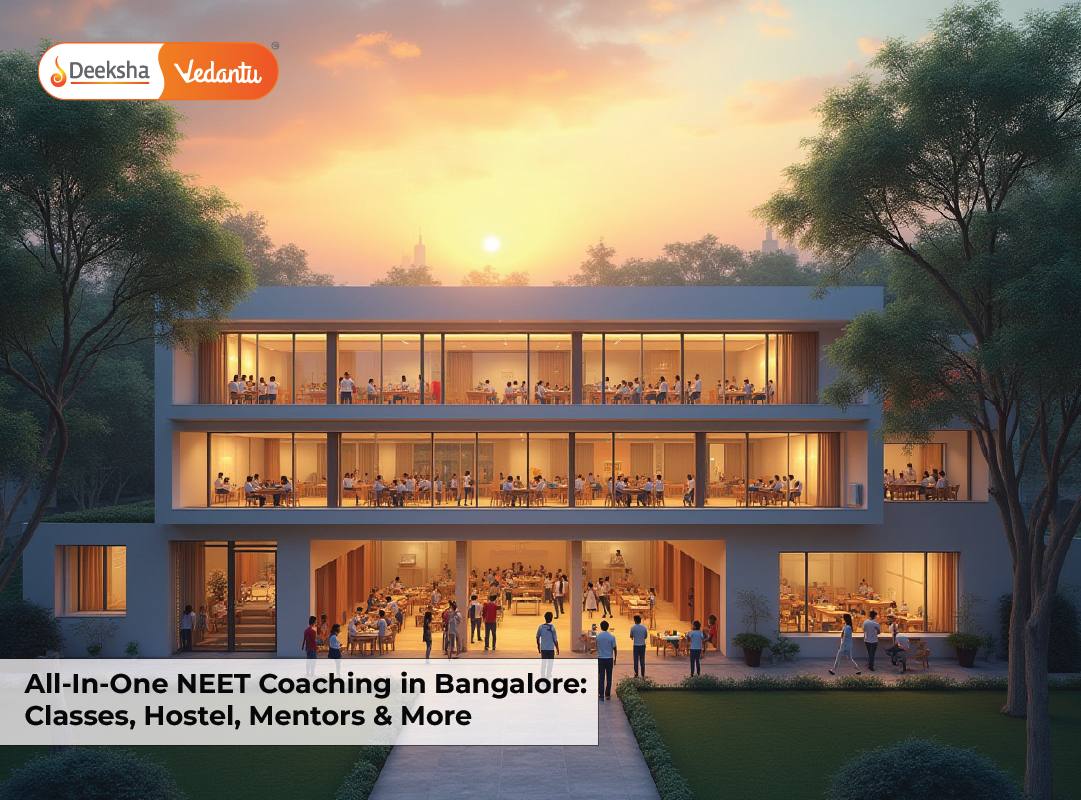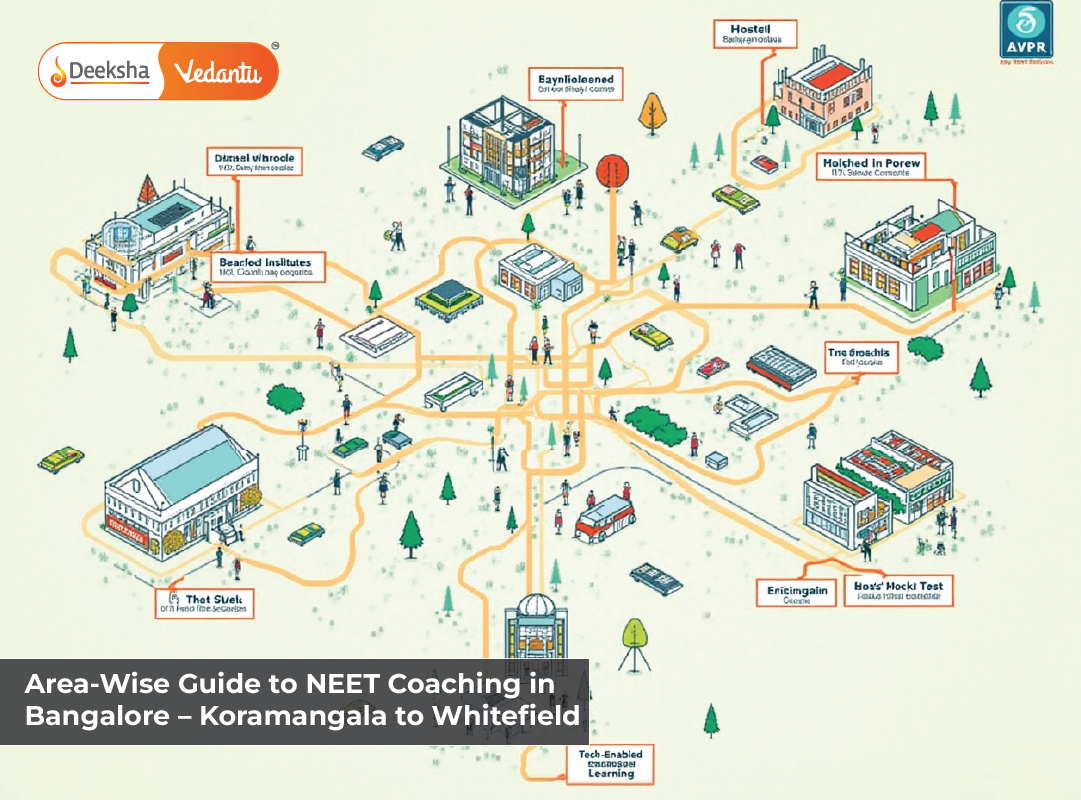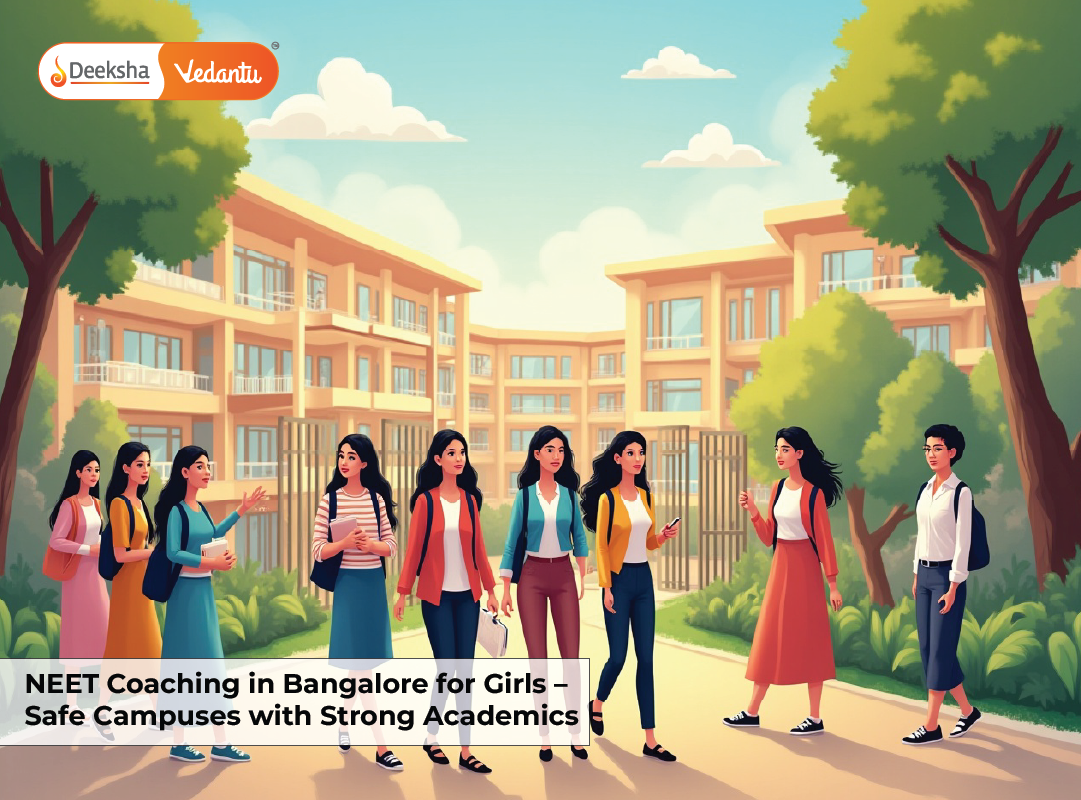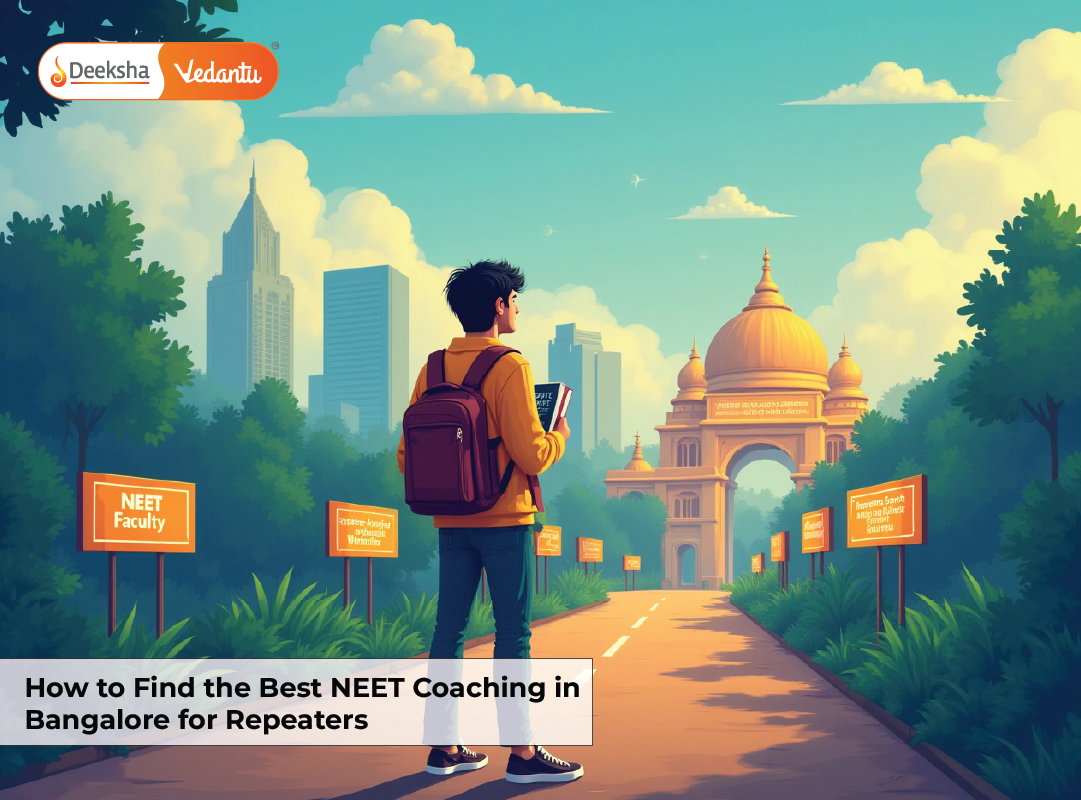Introduction
Residential PU colleges provide more than accommodation—they offer an academic ecosystem. From dedicated study halls to digital labs, wellness spaces, and academic mentoring, these facilities are designed to help students thrive in a competitive learning environment. When used effectively, these resources can play a key role in shaping academic performance and boosting overall confidence.
At Deeksha Vedantu, we encourage students to make full use of the residential infrastructure to build discipline, focus, and academic excellence. In this guide, we explore how students can strategically utilize residential PU facilities for maximum academic benefit.
The Role of Campus Infrastructure in Academic Growth
A well-equipped residential campus offers an immersive learning experience. Academic and co-curricular facilities help students stay focused, motivated, and organized throughout their PU journey. These amenities bridge the gap between school-style instruction and the independent approach required in college.
Key Academic Facilities:
- Study halls and quiet zones
- Library access with reference materials
- Academic mentoring and doubt-solving sessions
- Digital classrooms and online learning labs
- Peer learning zones and discussion rooms
- Wellness facilities for physical and emotional health
Each of these facilities, when used regularly, complements classroom teaching and helps students stay ahead in their preparation.
Leveraging Study Halls for Focused Learning
Study halls provide a distraction-free environment that’s ideal for revision, practice, and daily academic reinforcement. These spaces are often designed to encourage independent learning and promote self-discipline.
Benefits of Study Hall Use:
- Designated hours promote routine and time management
- Helps students focus without distractions from roommates
- Encourages individual accountability
- Fosters group study for concept reinforcement
- Allows uninterrupted revision during exam periods
At Deeksha Vedantu, structured study hall hours promote consistency and ensure every student dedicates quality time toward self-study. Our supervised study sessions also help students stay aligned with their academic goals.
Maximizing Library Resources
A well-stocked library is a cornerstone of academic excellence. It provides students access to a range of resources beyond the classroom curriculum. Residential students who use the library regularly develop stronger analytical skills and broader subject knowledge.
How to Use the Library Effectively:
- Borrow reference books for deeper understanding
- Use reading rooms for silent focused sessions
- Refer to previous year question banks and exam prep guides
- Engage in subject-specific research or extended learning
- Explore newspapers, journals, and current affairs publications
Students who cultivate library habits tend to perform better in theory-based subjects and develop critical thinking skills that support competitive exam preparation.
Academic Mentoring and Faculty Guidance
Access to mentors and approachable faculty can make a major difference in student outcomes. Residential campuses foster close-knit academic relationships that go beyond the classroom. Regular one-on-one guidance enhances concept clarity and builds confidence.
Role of Academic Mentors:
- Clarify difficult concepts through one-on-one sessions
- Monitor progress and provide tailored feedback
- Assist in creating revision plans and exam strategies
- Support emotional well-being and academic pressure management
- Help students set academic goals and track improvement
At Deeksha Vedantu, every student is assigned a mentor to track their academic journey and personal development. Our mentorship model ensures no student is left behind.
Utilizing Peer Study Groups
Peer learning is an underrated but powerful academic tool. Discussion-based learning helps students grasp complex ideas, clarify doubts, and reinforce memory. Residential campuses encourage informal academic discussions, which contribute significantly to comprehension.
How Peer Groups Help:
- Encourages collaboration and idea-sharing
- Builds confidence through knowledge exchange
- Improves communication and teamwork
- Enhances motivation and accountability
- Promotes peer teaching for stronger concept retention
Students often perform better when they revise in small groups or conduct peer quizzes to test each other. These informal sessions can be highly effective before exams.
Digital Learning Zones and Tech Access
Today’s academic success is heavily supported by technology. Residential PU campuses are integrating digital resources to help students stay competitive. With the right tools, students can customize their learning pace and revisit complex concepts.
Tech-Enabled Academic Support:
- Access to digital libraries and online courses
- Interactive video content for difficult topics
- E-books, learning apps, and exam simulators
- Smartboards and audiovisual learning aids
- Coding labs and computer science support for tech electives
Deeksha Vedantu provides high-speed internet access and curated digital content to supplement classroom learning. Our online test platforms help students assess their performance in real time.
Making the Most of Counseling and Wellness Support
Academic success is closely linked with emotional well-being. Residential programs that integrate wellness services create a supportive environment where students thrive. Facilities like wellness rooms, counseling cells, and fitness centers contribute to focus and mental resilience.
How Wellness Facilities Aid Academics:
- Stress and anxiety reduction through counseling
- Yoga and fitness sessions to increase focus
- Time management workshops to reduce procrastination
- Journaling and reflection for better mental clarity
- Regular health checkups and physical activity to improve energy levels
At Deeksha Vedantu, our wellness programs include guided meditation, stress-busting sessions, and accessible mental health support for students.
Participation in Academic Events and Clubs
Residential campuses often host academic clubs, competitions, and seminars that complement regular academics. These events help students explore subjects beyond textbooks and develop critical life skills.
Examples of Enriching Activities:
- Debates, elocution contests, and subject quizzes
- Science exhibitions and model presentations
- Commerce and economics clubs with real-world case studies
- Guest lectures from industry experts and alumni
Participation in such activities strengthens analytical thinking and fosters leadership among students.
Personalized Learning Plans and Assessment Systems
PU colleges with residential setups can offer more personalized tracking of academic performance due to continuous observation and support.
Features at Deeksha Vedantu:
- Weekly test series and detailed performance analytics
- Subject-wise SWOT (Strengths, Weaknesses, Opportunities, Threats) analysis
- Custom study plans based on mock test outcomes
- Early interventions for students showing signs of academic decline
This kind of regular tracking helps students stay motivated and push toward excellence.
Table: Residential Facilities and Their Academic Impact
| Facility | Academic Benefit |
| Study Halls | Promotes discipline and focused revision |
| Libraries | Offers resources beyond textbooks |
| Academic Mentoring | Personalized feedback and doubt resolution |
| Peer Study Groups | Reinforces understanding through group interaction |
| Digital Learning Zones | Enhances concepts with visual and interactive tools |
| Wellness Facilities | Supports emotional balance and exam preparation |
| Club Activities | Encourages academic exploration and collaboration |
| Assessment Systems | Provides real-time insights and improvement areas |
Tips to Maximize Academic Facilities
To truly benefit from residential academic infrastructure, students must use these resources consistently and mindfully.
Strategies to Get the Most Out of Your Campus:
- Stick to a weekly facility-use schedule
- Rotate between solo study and group learning
- Track your time spent in the library and study hall
- Use downtime productively (post-dinner, weekends)
- Maintain a list of questions for mentors before sessions
- Participate in workshops and academic clubs regularly
When students make these habits part of their lifestyle, the results show up in their grades and mindset.
FAQs
Can I use the study hall even when I don’t have exams?
Yes. Regular study hall usage builds habit and helps retain concepts better.
How often can I meet my academic mentor?
At Deeksha Vedantu, students can connect with mentors weekly or as needed.
Are digital labs accessible during non-class hours?
Yes. Students can use them for self-paced learning and practice sessions.
Do libraries have competitive exam prep materials?
Yes. Our libraries include resources for NEET, JEE, CET, and other entrance exams.
How does wellness affect academic success?
Students who are mentally calm and physically active perform better in assessments and stay motivated.
Can peer learning replace tuition classes?
Peer learning complements classroom teaching. It strengthens understanding but may not replace expert guidance.
Are academic clubs mandatory to join?
Participation is encouraged but not mandatory. However, it significantly enriches learning.
Conclusion
Residential PU campuses are academic ecosystems. When students proactively use the available facilities—from libraries and mentoring to peer study groups and wellness support—they lay the foundation for long-term academic excellence.
At Deeksha Vedantu, we empower our students to integrate facility usage into their daily routine. With the right approach, every student can unlock their potential and move closer to academic goals with clarity and confidence. Our holistic environment fosters not just better marks but better habits for life.
Table of Contents















Get Social